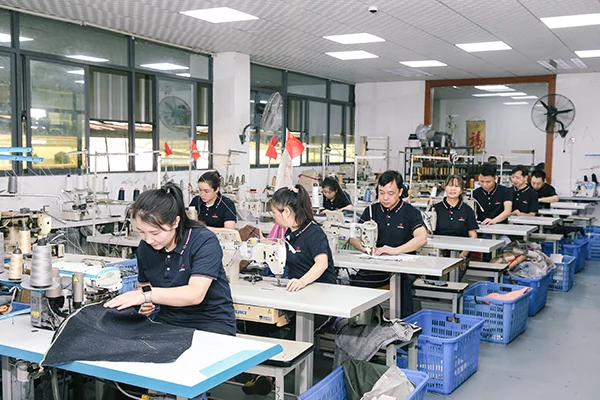Denim jeans are one of the most traded fashion items in Europe—but entering the EU market requires more than design and craftsmanship. Strict European regulations govern the use of chemicals, product safety, labeling, customs clearance, and ethical sourcing.
For importers and denim manufacturers, understanding these rules ensures smooth market entry, builds buyer confidence, and prevents costly recalls or shipment delays.
This article offers a comprehensive overview of EU compliance requirements for denim jeans, guiding you through chemical standards, labeling rules, import duties, and supply chain obligations.
Key Insights for Seamless EU Denim Jeans Compliance
- Ensuring denim jeans comply with EU chemical, labeling, and product safety regulations is critical for market access and consumer trust.
- Integrating supply chain due diligence and sustainability practices alongside regulatory compliance offers competitive advantage and risk mitigation.
Summary Table: Key EU Compliance Requirements for Denim Jeans
This table provides a concise, high-level summary of the most critical EU compliance requirements for denim jeans.
| Compliance Area | Key Requirement | Responsible Party | Reference Regulation | Notes |
|---|---|---|---|---|
| Chemical Safety | Restrict hazardous substances (azo dyes, heavy metals, formaldehyde) | Manufacturer/Importer | REACH (EC 1907/2006) | Requires chemical testing & technical documentation |
| Product Safety | Ensure general product safety for consumers | Importer | General Product Safety Directive | Applies to all consumer products, including textiles |
| Textile Labeling | Accurate fiber content & care instructions | Importer | Regulation (EU) 1007/2011 | Must be in local language of member state |
| Import Documentation | Complete customs declaration & certificates | Importer | Union Customs Code | HS codes: 6203.42 (men’s), 6204.62 (women’s) |
| Supply Chain Audits | Verify ethical labor practices | Manufacturer/Importer | BSCI/SMETA standards | Third-party verification recommended |
Chemical and Product Safety Standards

EU law strictly limits the use of hazardous chemicals in textile products. For denim jeans, compliance with REACH (EC 1907/2006) and the General Product Safety Directive (GPSD) is mandatory to protect consumers and the environment.
REACH Regulation for Denim Textiles
The REACH Regulation (Registration, Evaluation, Authorisation and Restriction of Chemicals) is the foundation of EU chemical control. It restricts harmful substances such as:
- Azo dyes that can release carcinogenic amines
- Formaldehyde, used for crease resistance
- Heavy metals like lead, cadmium, and nickel in dyes or rivets
Manufacturers must ensure that every stage—from dyeing to finishing—complies with REACH. Regular chemical testing through accredited labs and complete Safety Data Sheets (SDS) are essential for documentation.
Modern factories often adopt laser or ozone washing to reduce chemical use while achieving the desired denim effects, helping brands meet both compliance and sustainability goals.
Product Safety Under the GPSD
The General Product Safety Directive (GPSD) ensures that all consumer products sold in the EU are safe for normal use. In denim jeans, this includes preventing sharp metal parts, loose trims, or choking hazards for children’s clothing.
While most jeans do not require CE marking, importers must confirm that every product meets the general safety requirements. CE marking would only apply if the jeans had protective features (like industrial workwear) or electronic parts.
Environmental Standards and ZDHC Compliance
Sustainability has become a key part of EU compliance. Many brands now follow the ZDHC (Zero Discharge of Hazardous Chemicals) program to eliminate harmful substances from textile production.
ZDHC’s Manufacturing Restricted Substances List (MRSL) limits the use of APEOs, chlorinated solvents, and other pollutants. Compliance with ZDHC and wastewater testing not only meets EU environmental expectations but also builds credibility with responsible buyers.
In addition, the Corporate Sustainability Reporting Directive (CSRD) requires large companies to disclose their environmental performance, making supply chain transparency a competitive advantage.
Textile Labeling and Import Documentation

Accurate labeling and proper documentation are essential for customs clearance and legal sales in the EU.
EU Textile Labeling Rules
Under Regulation (EU) No 1007/2011, every pair of denim jeans must include:
- Clear fiber composition by percentage (e.g., 99% cotton, 1% elastane)
- Standard care symbols for washing and ironing
- The manufacturer or importer’s name/trademark
- Label text in the official language of the selling country
Mislabeling or missing information can result in customs rejection or product withdrawal. For claims such as “organic cotton” or “recycled denim,” proof and certification are required to avoid misleading consumers.
Customs Documents and HS Codes
For smooth entry into the EU Customs Union, importers should prepare:
- A commercial invoice and packing list
- A bill of lading or airway bill
- A certificate of origin for preferential tariffs (e.g., under GSP or CETA agreements)
Correct product classification is crucial:
- HS Code 6203.42 – Men’s or boys’ denim trousers
- HS Code 6204.62 – Women’s or girls’ denim trousers
Incomplete paperwork or misclassification can lead to delays, fines, or higher import duties. Consistent documentation demonstrates professionalism and compliance readiness.
Partner with Changhong Garment for Scalable Denim Production
Tap into flexible OEM/ODM jeans manufacturing with quick sampling, trend-driven styles, and sustainable fabric options. Whether you’re launching a startup or expanding your retail line, Changhong Garment delivers quality denim that meets global standards at cost-effective prices.

Supply Chain and Ethical Compliance

The EU is moving beyond product-level rules to focus on full supply chain accountability. Ethical sourcing and human rights compliance are now part of legal expectations for denim importers.
Due Diligence and Ethical Audits
The upcoming Corporate Sustainability Due Diligence Directive (CSDDD) requires companies to identify and prevent risks related to labor conditions and environmental harm.
To meet these expectations, denim suppliers often undergo BSCI (Business Social Compliance Initiative) or SMETA (Sedex Members Ethical Trade Audit) certification. These third-party audits verify compliance in areas such as:
- Fair wages and working hours
- Health and safety standards
- Prohibition of child or forced labor
Working with audited suppliers helps importers avoid supply chain risks and strengthens trust with EU buyers who value transparency.
Customs Cooperation and Market Monitoring
All denim jeans entering the EU must comply with the Union Customs Code (UCC). Declarations must be submitted through the Import Control System (ICS) before goods arrive. Missing or inconsistent data may result in inspection or delay.
The EU’s RAPEX system (Rapid Alert System for Dangerous Non-Food Products) ensures that non-compliant products are flagged across all member states. This makes preventive compliance—before shipment—essential for every manufacturer.
Partner with a Reliable Denim Manufacturer

Partner with Changhong Jeans for compliant, trend-driven denim production. we leverage over 20 years of denim manufacturing experience to offer a comprehensive range of high-quality denim products. Our offerings include men’s and women’s denim jeans, denim jackets, denim skirts, and denim shorts, with flexible customization and reliable quality. Our integrated manufacturing and washing facilities ensure every piece meets EU standards.
If you are looking for a reliable denim manufacturer, feel free to contact us. We are committed to providing you with high-quality products and excellent service.






